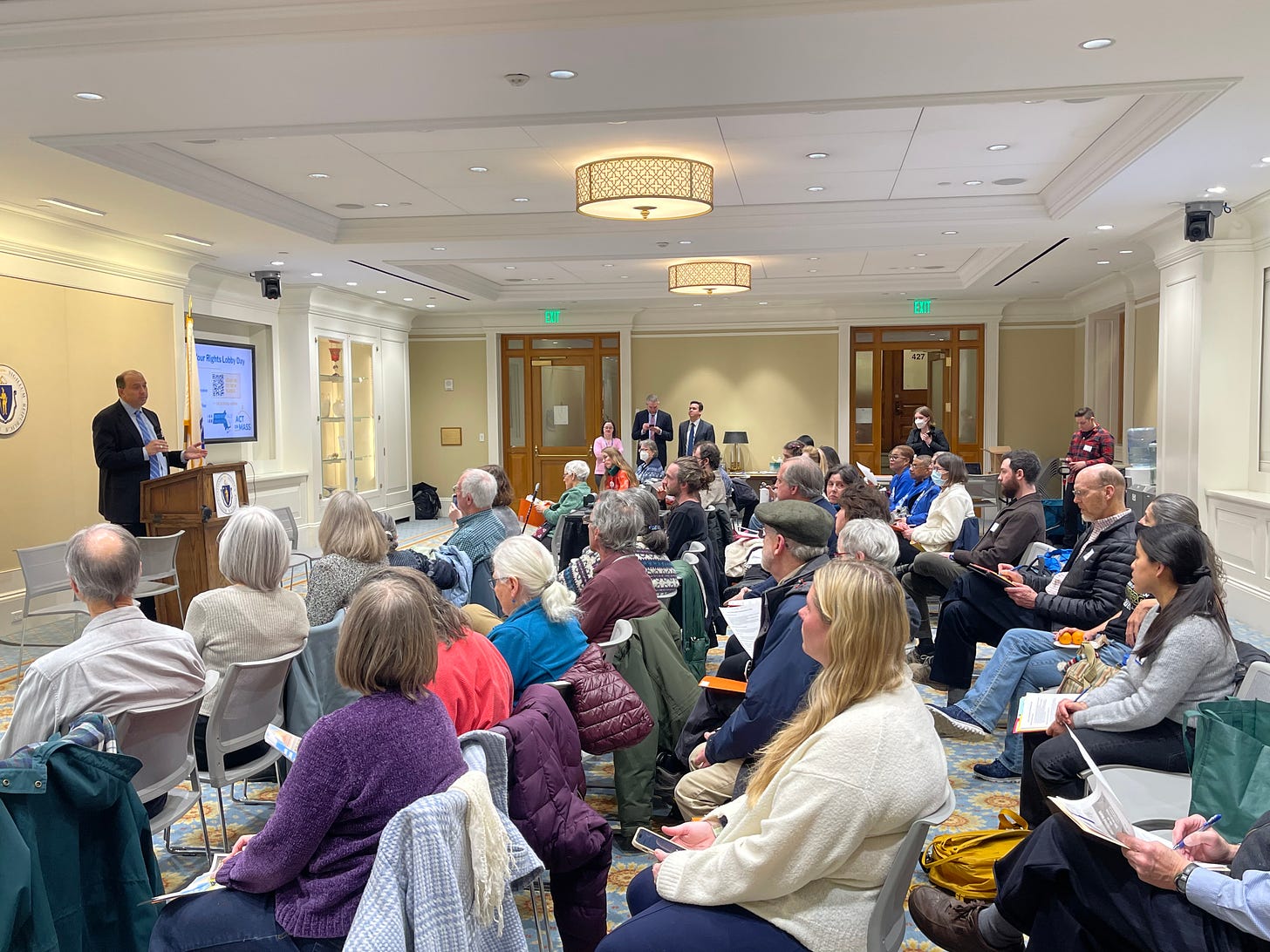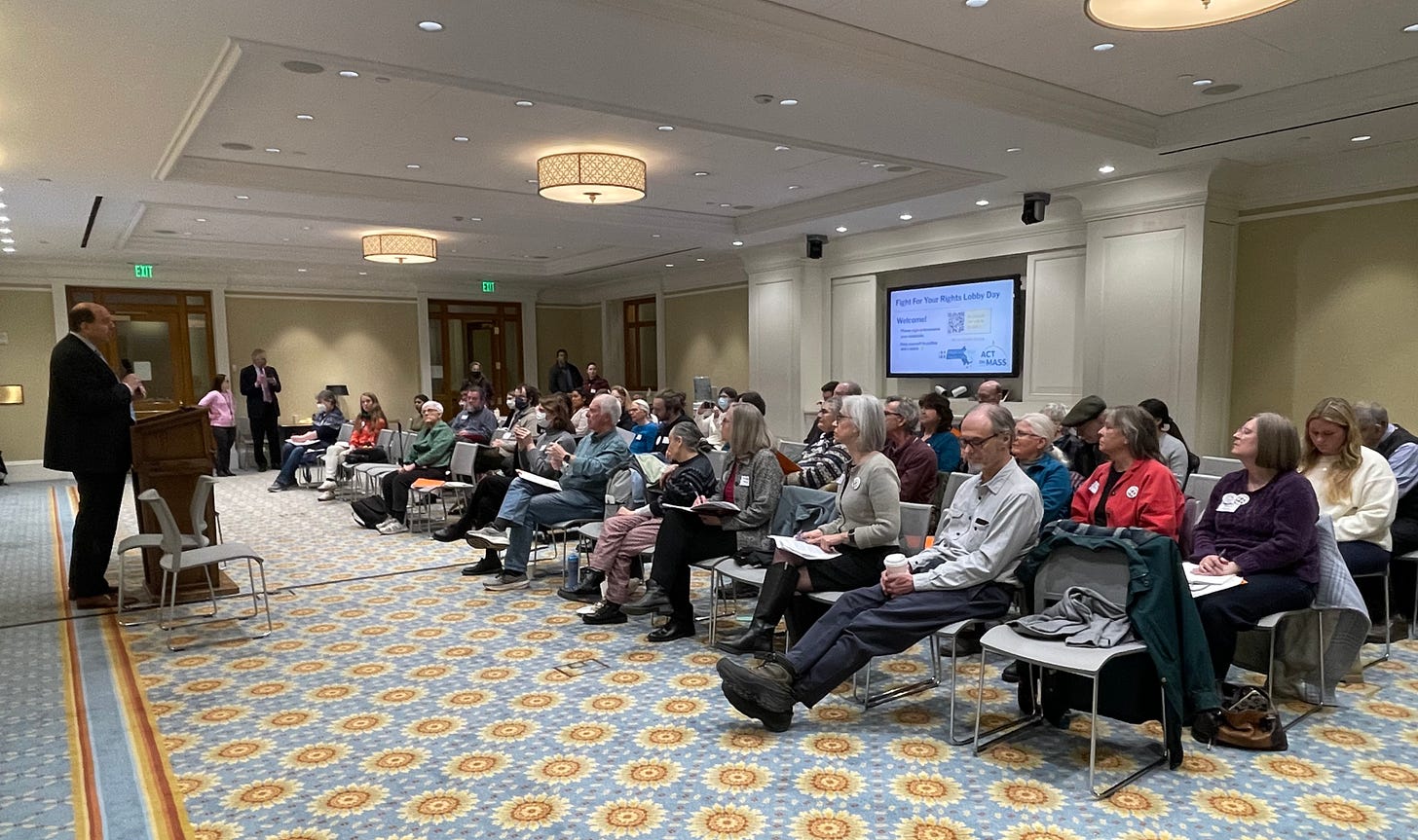As I diagnose the deep problems in gerrymandered red statehouses, I’m often challenged by Republicans, Democrats and independents alike—well what about blue states?
They aren’t perfect either.
Why don’t you talk about those?
Creating Laboratories of Democracy
Actually, I do talk about them….in both my books, and regularly with democracy activists. As I put it in Laboratories of Autocracy (page 305): “When those who support democracy have the power to strengthen democracy, they must do so. And do it as soon as the opportunity presents itself.”
Examples:
First, gerrymandering anywhere leads to poor representation and poor governance. I want it gone, wherever it is and whoever does it. Which is one reason I’m a big proponent of reform at the federal level that will eliminate it from all states. Just like I want reform at the state level that also keeps any party from gerrymandering. Ending gerrymandering will help everyone, and improve government everywhere!
But beyond gerrymandering, I have a second strong principle I push — if those who believe in democracy gain a majority of a state legislature, or other positions of power, they must act to turn their state into a Laboratory of Democracy. The sooner, the better!
And that’s why it’s been so great to see the fervent activity in Michigan, Pennsylvania and Minnesota since Democrats gained majorities in ‘22 to do just that. The new leaders of these states have enacted a wide variety of pro-voter, pro-democracy best practices—from automatic voter registration, to wide use of drop boxes, to same day voter registration, to felon re-enfranchisement, to pre-registration of 16- and 17-year olds, and more.
Minnesota, Michigan and New Mexico just yesterday received A+ ratings from the Institute for Responsive Government for the changes they made in 2023. In only a year of work, they are creating true Laboratories of Democracy.
Why Does This Matter? Let Us Count the Ways
Now, some may ask, if these states are already blue, why does this matter?
The first answer is that democracy is bigger than party, so it matters no matter where it’s done. But let me be more specific as to why this matters so much:
First, it’s the right thing to do. Voters in these states are entitled to laws that make our democracy as accessible as possible, and in 2023, there are so many best practices to do this that that we know work.
Second, it creates more working precedents of what’s possible—and of what’s popular. The anti-democracy right works overtime to create myths that voter fraud accompanies these types of reforms. Don’t buy those lies. But there’s no better way to show they are false than to implement them widely whenever we can, and show that such reforms make the process of voting easier without the negative effects the right trumps up.
We already know that the widespread use of drop boxes in Washington State and Oregon lead to more convenient voting, higher turnout without any problems—we need to keep showing that by adding them in more states. When implemented, these reforms are also incredibly popular because they are so convenient for voters of all parties and persuasions—which creates a helpful contrast to states that are making voting more difficult. Let Ohio voters forced to drive an hour each way to get to their sole drop box realize their own officials are forcing them to make that drive, as they watch voters in other states dropping off their ballot down the street, in five minutes or less. Best practices in pro-voter states create pressure to change in others.
Third, not undertaking these changes is harmful. Poor voting laws mean fewer people vote, which means lower turnout. And as we learned in New York State in 2022, lower turnout in a blue state can do great damage, such as electing George Santos and a bunch of other Republicans to the U.S. House in a way that flipped the House majority. (To their credit, New York legislators also updated their voting laws in 2023 — easing the early vote process in particular—in a way that should help voters in 2024. They just got an A- for those changes. Good!).
But it’s also in a harmful in another way, as I point out in my books and as I experienced first hand when advocating for change in Ohio. Whenever a blue state has poor voting laws, the anti-democracy right uses those states as a battering ram for why they, too, shouldn’t make reforms to their voting laws. These people know exactly which states aren’t doing things well, and throw them in the face of voting reform advocates at very opportunity. We must take away those cynical arguments.
Advocacy in Blue States: The Massachusetts Example
So…if you are an activist in a blue state, of course we want your help in our gerrymandered and highly suppressed red states. But don’t forget to take a look at your own state laws and advocate to improve them there—for all the reasons I cite above.
And I’m writing this today—from a train racing through snowy Massachusetts—because yesterday a passionate coalition of activist groups I’ve gotten to know from across this state did exactly that at their statehouse.
These groups have been pushing a variety of reforms within their state government for some time, starting with same-day voter registration (which has been proposed for 15 years but never implemented), the elimination of an antiquated voter registration purging process, the regular inspection of polling places to ensure they are accessible, and absentee/mail voting reforms. They are also pushing for a more transparent legislative process.
Yesterday, these groups had their first ever “Lobby Day” at the statehouse, where they gathered to train new members and jointly advocate for the specific bills that would implement these priorities.
They had face-to-face conversations with more than 40 of their state representatives about the importance of these bills:
To quote one of their leaders, Deb Paul, Chairperson of the Indivisible Mass Coalition:
“Many people have a false assumption that we shouldn’t bother with the MA Statehouse anyway because we’re such a “blue” state. But, what Massachusetts does matters because it’s seen as a leader by other states and it can frequently impact the nation in both positive and negative ways.
Yesterday’s lobby day at the Massachusetts State House was an exciting day of democracy in action! Over 50 people met with their elected state legislators, exercising their constituent power and asking their electeds to vote in favor of 3 essential rights bills which will decrease barriers to voting, ensure privacy of our location via phone data and the public disclosure of committee votes. People gathered after their legislator meetings and were enthused and energized to continue their activism as many had never met with their elected officials until yesterday. It was an inspiring and transformative experience for those who attended as they had made a difference by helping move the MA legislature in a positive direction of improving people’s rights!”
Tell me you’re not inspired!
To learn more on this effort, go HERE.
Yes, New Hampshire got the attention yesterday. And we must beat Trump, of course.
But what Deb and these tireless activists showed in Massachusetts yesterday is that the battle for democracy involves more than just even-year elections in swing states—or even elections at all. Lifting democracy involves non-stop effort, in blue states and red, on big election days as well as every day.
Keep going!






You are a tireless advocate for democracy!
David. I am no longer receiving emails from Blue Ohio. I don't know what happened. ajdjr73@gmail.com